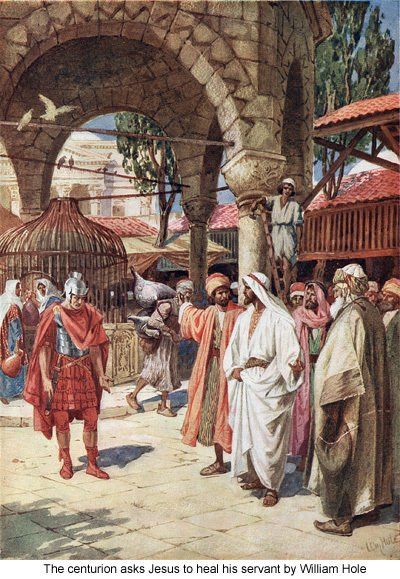Message of Abbot Paul - Saturday 26th June
Message from Fr Paul for Saturday, 26th June 2021
I have never visited the Holy Land, so when I read the Bible, I tend to picture the events I am reading about happening in places that I have visited and which, from photographs, look similar to Galilee, Samaria and Judaea or Egypt, Sinai and the Red Sea. Much of the Peru I knew so well looks remarkably like the Holy Land, so do parts of Greece, where I studied as a student over fifty years’ ago. I mention this because today’s Gospel story takes place in Capernaum, which I imagine as a small Greek town I knew so well as a young man, or a Peruvian village I visited regularly as a priest about his pastoral duties. Neither was much different to what Matthew describes today. In fact, it always struck me in Peru, that the further you went into the countryside (mostly scrubland and desert) from the central town of our parish, the further back you went in time. Life was truly primitive: it felt like living in Old Testament times!
The story, so well-known to us all, is that of the healing of the centurion’s servant, (Mt 5: 5-17). “When Jesus went into Capernaum a centurion came up and pleaded with him. ‘Sir,’ he said ‘my servant is lying at home paralysed, and in great pain.’ ‘I will come myself and cure him’ said Jesus. The centurion replied, ‘Sir, I am not worthy to have you under my roof; just give the word and my servant will be cured. For I am under authority myself, and have soldiers under me; and I say to one man: Go, and he goes; to another: Come here, and he comes; to my servant: Do this, and he does it.’ When Jesus heard this, he was astonished and said to those following him, ‘I tell you solemnly, nowhere in Israel have I found faith like this. And I tell you that many will come from east and west to take their places with Abraham and Isaac and Jacob at the feast in the kingdom of heaven; but the subjects of the kingdom will be turned out into the dark, where there will be weeping and grinding of teeth.’ And to the centurion Jesus said, ‘Go back, then; you have believed, so let this be done for you.’ And the servant was cured at that moment.” The centurion isn’t asking for himself, but for his servant. We could be cynical and see in his request an ulterior motive, for of what use is a paralysed servant. But that is not what the story is about. Rather, it concerns the kindness and anxiety of a master for his servant and the mercy of God, made manifest in Jesus. Although the centurion wants his servant healed, he doesn’t want to give Jesus excess work, and so says the words that Christians have repeated ever since when they approach the Sacrament, the Bread of heaven. “Lord, I am not worthy that you should enter under my roof, but only say the word, and I shall be healed.” Jesus sees the centurion’s humility as deep faith, the likes of which he hasn’t seen in all Israel. The centurion would have been a gentile, a non-Jew, a pagan. One sometimes finds deeper, purer faith in non-Christians, strange to say, and Jesus corroborates this. The fourth Eucharistic prayer describes such people as, “those whose faith is known to You alone.” God sees what we do not: he sees into people’s hearts.
Matthew then goes on to tells us that Jesus heals Peter’s mother-in-law, who is in bed with a fever and, after the meal she serves, “He cast out the spirits with a word and cured all who were sick. This was to fulfil the prophecy of Isaiah: He took our sicknesses away and carried our diseases for us” Countless miracles of healing and forgiveness are recounted in the Gospels. Matthew always sees these as the fulfilment of the prophecies of old. They prove that Jesus is the Messiah, the Son of the living God.










